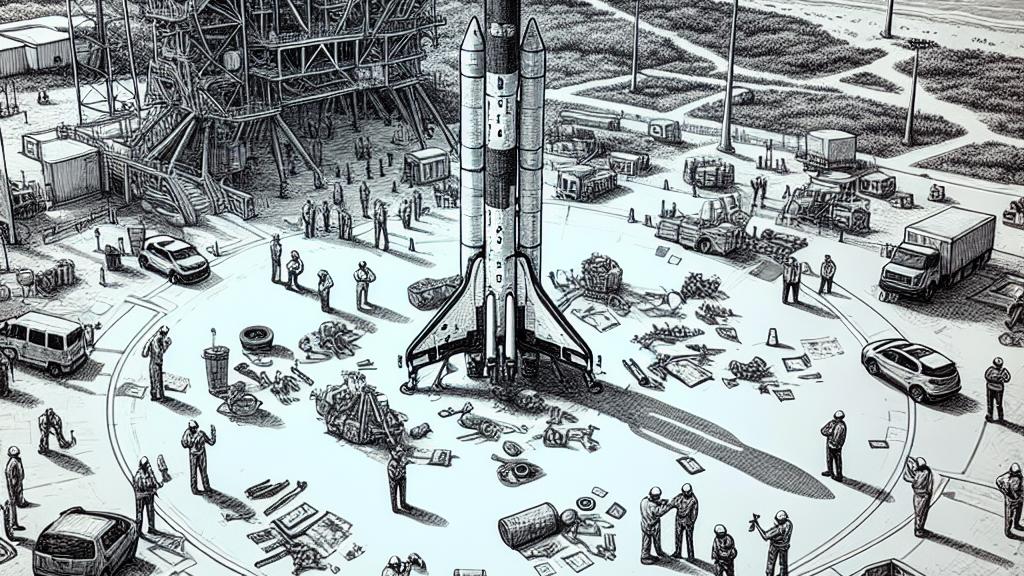FAA Grounds SpaceX Falcon 9 Over Crew-9 Launch Issue
Overview
- The FAA has grounded SpaceX's Falcon 9 rocket following a problematic Crew-9 launch, raising serious safety concerns.
- This incident involved the second stage missing its designated landing area, prompting an urgent investigation into operational safety.
- The grounding could significantly delay upcoming space missions, including the highly anticipated Hera mission and the Europa Clipper expedition.

Grounding Incident at Cape Canaveral
In a striking turn of events, the Falcon 9 rocket was grounded at Cape Canaveral, Florida, just after its Crew-9 mission launched on September 28, 2024. The Federal Aviation Administration (FAA) confirmed that the grounding resulted from a significant anomaly: the second stage of the rocket failed to land in its intended hazard area, a lapse that cannot be overlooked. Fortunately, no injuries or damages to public property occurred, yet this situation has ignited a crucial conversation about safety protocols in commercial space travel. Notably, this grounding marks the third occurrence this year for the Falcon 9, raising flags about the reliability of one of the world’s most utilized rockets and emphasizing the need for stricter oversight in an era of rapid space exploration.
Challenges Faced During the Crew-9 Operation
The mission aimed to transport NASA astronauts to the International Space Station, and it successfully achieved that goal. However, the unexpected failure of the second stage during its return adds complexity to what was otherwise a heroic launch. Just a few months before this mission, SpaceX had to address a concerning upper stage failure and a dramatic booster explosion, both incidents highlighting vulnerabilities in their operational strategies. These challenges underline how vital rigorous investigations are to prevent future mishaps and enhance safety measures across the board. Moreover, the FAA’s collaborative approach with SpaceX is crucial; it fosters a culture of continuous learning and adaptation, essential for ensuring that commercial space travel remains safe and environmentally sound.
Implications for Future Missions and the Space Industry
As a domino effect of this grounding, upcoming missions such as the Hera exploration mission — set to delve into the mysteries of the asteroid belt — and the Europa Clipper, aimed at probing Jupiter's icy moon, now face uncertainty. These missions hold the potential to unlock new scientific insights and drive international collaboration, making the stakes incredibly high. While the FAA’s intensive investigation is undoubtedly necessary for public safety, it also halts progress and might delay valuable research advancements. The implications of this grounding ripple beyond SpaceX, underscoring the importance of precise launch windows and the interdependence of global space efforts. In the grand tapestry of space exploration, every setback presents an opportunity; thus, the aerospace community must rise to the challenge, work together, and forge ahead, armed with lessons learned from each incident.

Loading...